ETH News
All stories that have been tagged with Data science
These three GenAI collaborations show the power of science diplomacy
- News
- Zukunftsblog

Science diplomacy can transcend the geopolitical arena, building trust and bridging gaps between nations, emphasises Joël Mesot. And presents three partnerships in generative AI that highlight the power of cross-sector cooperation – for humanitarian and peacekeeping missions as well as trustworthy AI.
“Big Tech is not the problem”
News
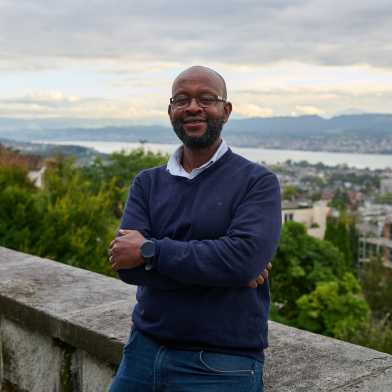
Professor Ciira wa Maina is the Chair of Data Science Africa, a founding member of the International Computation and AI Network (ICAIN), an initiative to democratise artificial intelligence (AI). In an interview with ETH News, he explains how AI can help African farmers and why Europe benefits from cooperation.
From weakest link to security factor
- News
- Zukunftsblog

Verena Zimmermann is convinced that it is too simplistic to view people solely as a risk factor in cyber security. Rather, the special abilities of users should be utilised in a targeted way in order to increase cyber security.
ETH Zurich and EPFL enhance collaboration to boost AI in Switzerland
News

ETH Zurich and EPF Lausanne (EPFL) are intensifying their collaboration in artificial intelligence (AI). They have founded the Swiss National AI Institute (SNAI) with the aim of addressing challenges in AI by leveraging their broad scientific expertise. Funding for the related research programs has been secured.
Researchers at ETH Zurich develop the fastest possible flow algorithm
- Homehero
- News

Rasmus Kyng has written the near-perfect algorithm. It computes the maximum transport flow at minimum cost for any kind of network – be it rail, road or electricity – at a speed that is, mathematically speaking, impossible to beat.
Medicine has yet to tap the potential of digitalisation
Zukunftsblog

Despite digitalisation being a mainstay in many areas of life, the healthcare sector is lagging behind. Jörg Goldhahn explains what the medical field can learn from banks and travel companies.
Digi, Nano, Bio, Neuro – or why we should care more about converging technologies
- Zukunftsblog
- News
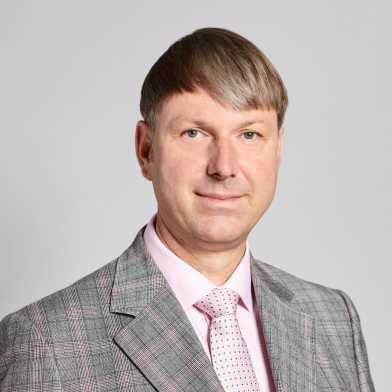
Dirk Helbing expects future digital technologies to penetrate the human body even more in the future. However, he believes that society is not prepared for the risks involved. He puts forward a new legal framework to protect our most intimate data from misuse.
How data provided by fitness trackers and smartphones can help people with MS
News

Monitoring and treating a case of multiple sclerosis requires reliable and long-term data on how the disease is progressing in the person in question. Fitness trackers and smartphones can supply this data, as a research team led by ETH Zurich has now shown.
Knocking cloud security off its game
News

Public cloud services employ special security technologies. Computer scientists at ETH Zurich have now discovered a gap in the latest security mechanisms used by AMD and Intel chips. This affects major cloud providers.
Artificial intelligence detects heart defects in newborns
- Press release
- News

Researchers from ETH Zurich and KUNO Klinik St. Hedwig in Regensburg have developed an algorithm that provides an automatic and reliable method of detecting a certain heart defect in newborns.
A medical degree programme for those who ask why
News
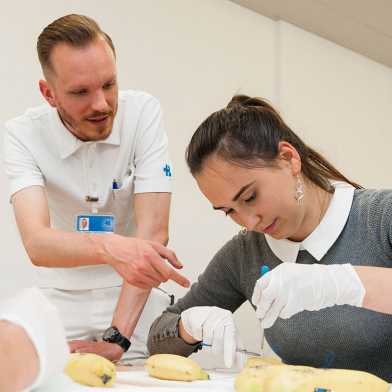
What began as a venture quickly proved its worth: The ETH Bachelor in Human Medicine is well received by graduates and has helped to establish ETH Zurich in the Swiss medical education landscape. In a video, five graduates talk about what makes studying medicine at ETH so special.
Accurate snow measurement thanks to AI and satellites
News

Snow measurement has never been so fast and accurate: ETH Zurich researchers have developed an artificial intelligence capable of determining snow depth across Switzerland using satellite images.
Being human
Globe magazine
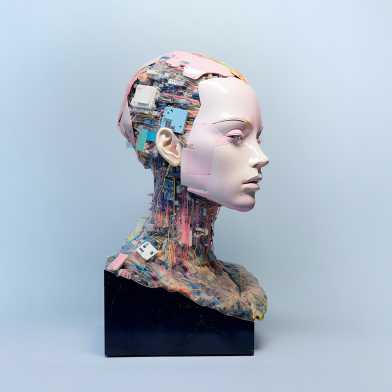
With its ability to write text and generate images, artificial intelligence is making inroads into many areas of life. Perceived as threatening, enriching or just plain gimmicky, AI also raises a fundamental question: what is it that makes us human?
An AI future worthy of humanity
- Zukunftsblog
- News

Ethicist Peter G. Kirchschlaeger highlights how artificial intelligence can be regulated worldwide – and is pleased to have the support of leading international figures.
“The future remains exciting!”
- Globe magazine
- News
- Homehero
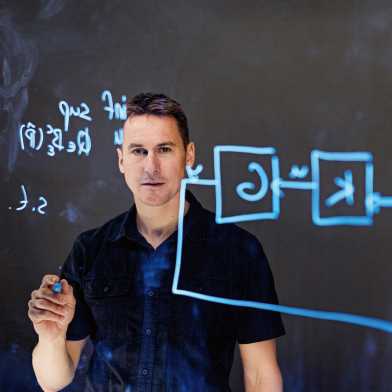
For Florian Dörfler, control engineering is the cornerstone of all automation. When away from work, however, he prefers to experience nature without feedback loops.
“A development freeze would jeopardise transparency”
- News
- Homepage
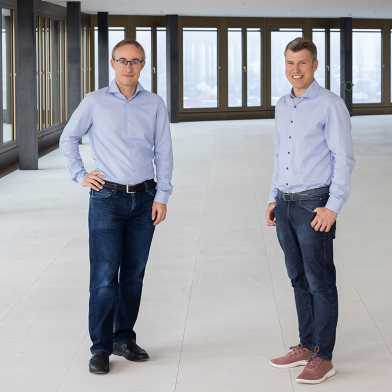
In an open letter, tech luminaries from the worlds of science and industry are calling for a freeze on training new AI models that are more powerful than GPT-4. ETH AI experts Andreas Krause and Alexander Ilic from the ETH Zurich AI Center consider this to be difficult to enforce and associated with risks.
"In 2023, no one will be able to avoid AI progress any longer"
Homepage
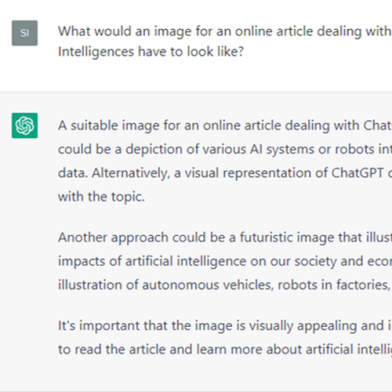
Artificial intelligence seems to be on the rise – and not just in the headlines. Florian von Wangenheim from ETH Zurich’s Chair of Technology Marketing and researcher at the ETH AI Center explains this trend in a short interview.
Hope for patients with a severe rare disease
- News
- Homepage

New research offers potential benefits for those affected by the hereditary metabolic disease methylmalonic aciduria. By combining the results of multiple molecular analyses, scientists can better diagnose this rare and severe disease. In the future, an improved understanding of the disease might also improve treatment options.
Biomedical scientist named ETH’s new Vice President for Research
News
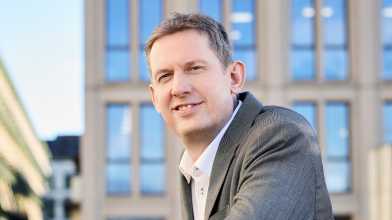
The ETH Board has appointed Christian Wolfrum as Vice President for Research at ETH Zurich effective 1 January 2023. In his roles as Professor of Translational Nutritional Biology, Director of Studies and Associate Vice President for Medicine, Wolfrum has actively shaped medical teaching and research at the university.
Speculative calculations open a backdoor to information theft
News

ETH Zurich researchers have discovered a serious security vulnerability in computer hardware. The vulnerability, called "Retbleed," affects microprocessors from market leaders Intel and AMD. All commercially available operating systems worldwide that use these processors are affected. When computers execute special calculation steps to compute faster, they leave traces that hackers could abuse.
ETH researchers discover vulnerabilities in Mega cloud service
News

A team of cryptographers at ETH Zurich conducted extensive testing on the New Zealand-based cloud platform Mega. In doing so, they discovered security holes that would allow the provider to decrypt and manipulate customer data.
Automated analysis of animal behaviour
News
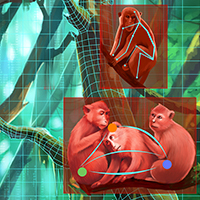
Researchers have developed a new method that uses artificial intelligence to analyse animal behaviour. This opens the door to longer-term in-depth studies in the field of behavioural science – while also helping to improve animal welfare. The method is already being tested at Zurich Zoo.
Neural network can read tree heights from satellite images
News
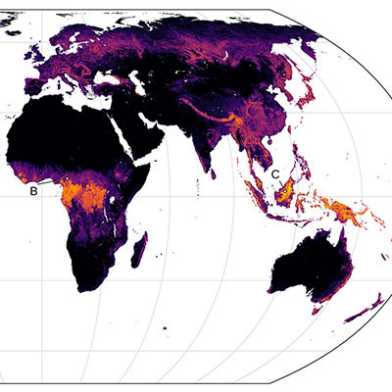
Using an artificial neural network, researchers at ETH Zurich have created the first high-resolution global vegetation height map for 2020 from satellite images. This map could provide key information for fighting climate change and species extinction, as well as for sustainable regional development planning.
Underestimated risks
Globe magazine

Climate change, pandemics and cyber attacks are risks that have long been in the public spotlight. But there are also risks that ETH researchers consider are still being given too little attention. Photographer Tina Sturzenegger has captured the scenarios on film.
Better control of development aid through AI
News

A research team from ETH Zurich and LMU Munich is using artificial intelligence to analyse 3.2 million development aid projects worldwide. Their research reveals trends and funding gaps.
Using statistical methods to predict the course of disease
News
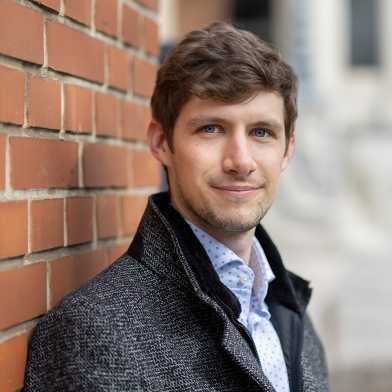
Data contains much more than just the information on the surface. With statistics, deeper cause-and-effect relationships can be brought to light. This is what Alexander Marx is researching as a Fellow at the ETH AI Center using artificial intelligence. One of his goals is to be able to make predictions regarding diabetes in children.
How human and artificial intelligence can augment one another
News
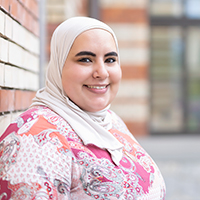
Mennatallah El-Assady develops explainable AI programs that explain their own workings – and let users provide input. This can help analysts take a deep dive into political debate.
Artificial intelligence listens to the sound of healthy machines
News

Sounds provide important information about how well a machine is running. ETH researchers have now developed a new machine learning method that automatically detects whether a machine is "healthy" or requires maintenance.
Predicting complex dynamics from data
News

Researchers at ETH Zurich have developed a new algorithm that allows them to model the dynamics of physical systems from observations. In the future it could be applied to the onset of turbulence and tipping points in climate.
Are these the last ERC grants for ETH?
Press release

In the last application process for the sought-after ERC Starting Grants, the European Research Council made 11 awards to ETH researchers worth about CHF 17 million. Due to Switzerland’s non-association, however, the researchers will not receive these grants. The funds will now be provided by the State Secretariat for Education, Research and Innovation (SERI).
Charging electric vehicles with photovoltaics at home
News

An electric car that runs on PV power sounds appealing. But is it really possible to enjoy flexibility with a vehicle charged through a home photovoltaic system? An ETH research team has reached some surprising conclusions.
Robots build new hanging gardens
Press release
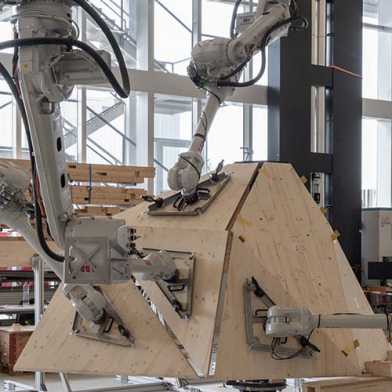
With the help of artificial intelligence and four collaborative robots, researchers at ETH Zurich are designing and fabricating a 22.5-metre-tall green architectural sculpture.
Computer algorithms are currently revolutionising biology
Zukunftsblog

Artificial intelligence can help predict the three-dimensional structure of proteins. Beat Christen describes how such algorithms should soon help to develop tailored artificial proteins.
New, high-resolution models merge weather and climate

Torrential rain and flooding have dominated the weather over the past few weeks. To forecast these weather events with greater accuracy and gain a better understanding of them against the backdrop of global climate change, ETH Zurich and partners are developing a new generation of high-resolution weather and climate models.
Four cryptographic vulnerabilities in Telegram
News

An international research team of cryptographers completed a detailed security analysis of the popular Telegram messaging platform identifying several weaknesses in its protocol that demonstrate the product falls short of some essential data security guarantees.
Circuits of the future
News
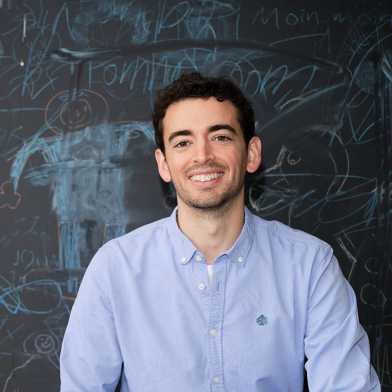
The more connected the world becomes, the greater the demands that data traffic places on communications infrastructure. ETH Pioneer Fellow Marc Reig Escalé and his team develop innovative chips that process information faster than previously possible while requiring even less energy.
“Wastewater provides representative data on viral strains”
News
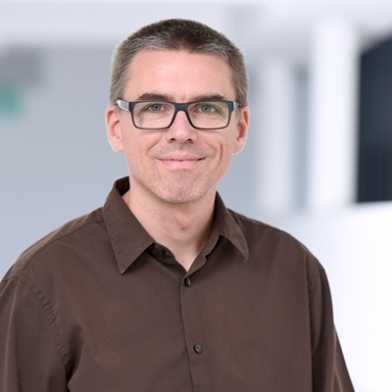
Niko Beerenwinkel, a Professor at the Department of Biosystems Science and Engineering at ETH Zurich in Basel, is working with colleagues from other research institutions to examine wastewater for traces of the coronavirus. He has detected the Delta variant in five out of six Swiss wastewater treatment plants examined, including ones in Zurich and Bern. Recently he spoke with ETH News.
Targeted therapies thanks to biomedical informatics
News
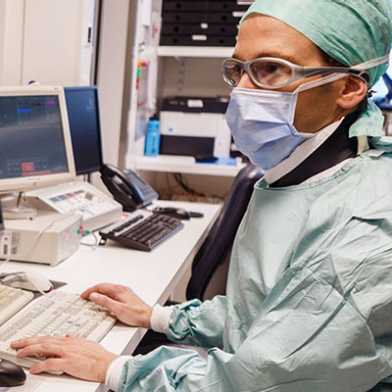
The new “LOOP Zurich - Medical Research Center” promotes patient-focused therapies – for example in oncology and neuro-rehabilitation. To achieve its goals, the center brings together specialist knowledge in the fields of biomedicine, clinical research and bioinformatics from the University of Zurich, ETH Zurich as well as Zurich’s four university hospitals.
Designing better antibody drugs with artificial intelligence
News
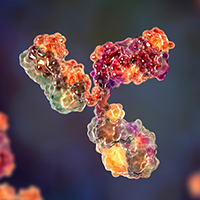
Machine learning methods help to optimise the development of antibody drugs. This leads to active substances with improved properties, also with regard to tolerability in the body.
AI provides debris flow warnings
News

When it comes to debris avalanches and mudslides, there is usually very little warning. Using seismic monitoring and machine learning, researchers from ETH Zurich and WSL have developed an alarm system that can provide early warning of debris flows at Illgraben.
Data science and artificial intelligence for the public good
Press release

The Federal Statistical Office (FSO) is joining forces with the Swiss Data Science Center, a joint venture between the two federal institutes of technology, to encourage the use of data science and artificial intelligence within the administration.
A vision for the future
News
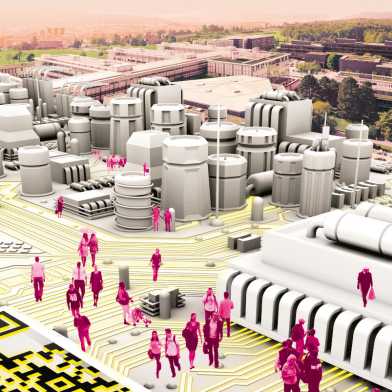
Data and information, health and medicine, materials and manufacturing, and responsibility and sustainability: these are the main priorities set out in ETH Zurich’s Strategy and Development Plan for 2021–2024.
Call for transparency
Zukunftsblog

The turbulence created by speculation in GameStop shares has highlighted the lack of transparency on trading platforms. Roger Wattenhofer thinks it is time for a change, and calls for more open data not just in financial transactions, but in many other areas.
Detailed tumour profiling
News
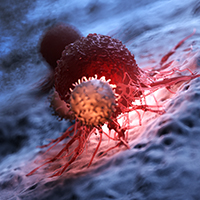
As part of a clinical study involving patients from the University Hospitals in Zurich and Basel, researchers are conducting a thorough and highly precise investigation into the molecular and functional properties of tumours. Their goal is to help physicians to better determine which treatment will best match every patient’s cancer and thus be most effective.
How clicks on a job platform can reveal bias
News

Scientists at ETH Zurich have leveraged big data from recruitment platforms and machine learning to study hiring discrimination. They show that discrimination against immigrants depends, among other things, on the time of day; and that both men and women face discrimination.
ETH AI spin-off DeepCode acquired by a unicorn in cybersecurity
News
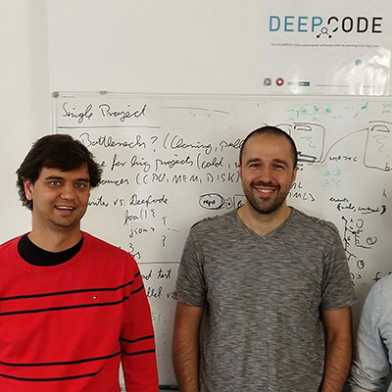
DeepCode, an ETH spin-off that built the first AI platform for code is to be acquired by Snyk, a world leader in developer-first security code analysis.
Foundations for trustworthy artificial intelligence
News
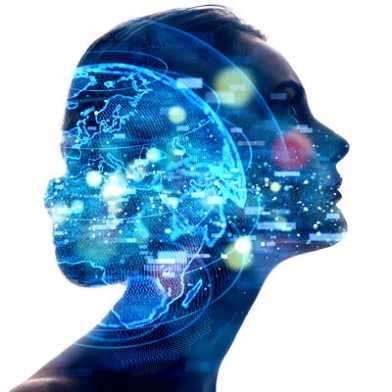
Leading AI researchers from 30 top institutions across Europe are joining forces to form the European AI network ELLIS. Today, it celebrates its launch, with ETH Zurich as a founding member. The ETH Zurich ELLIS Unit is set on establishing the foundations for reliable and trustworthy artificial intelligence.
How Machine Learning can help in medicine
News
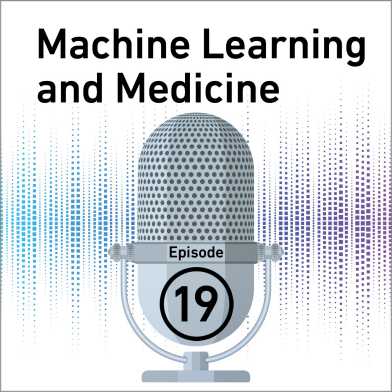
In the ETH-Podcast the two computer scientists Julia Vogt and Fanny Yang talk about what drew them to their field and why machines will never replace human beings in the medical field.
Cash is dead, long live CBDC
Zukunftsblog

Roger Wattenhofer is convinced that the digital currency CBDC will completely replace cash rather sooner or than later, as the new electronic payment method offers many advantages.
Blueprint for the perfect coronavirus app
News

Many countries are turning to digital aids to help manage the COVID-19 pandemic. ETH researchers are now pointing out the ethical challenges, that need to be taken into account and the issues that need careful consideration when planning, developing and implementing such tools.
Uncovering crime patterns using location data
News

The way people move around in cities gives us clues as to when many crimes are committed and in which hotspots, as ETH researchers have demonstrated using anonymised data from location technology plattforms.
Can AI help tackle climate change?
News
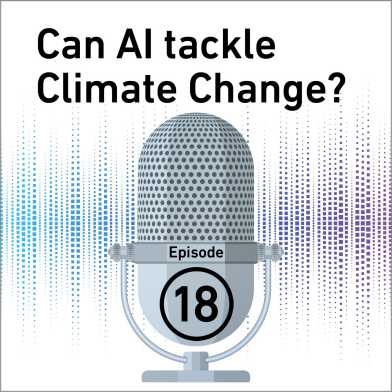
Climate change hasn’t been hitting the headlines quite as much in recent months – but that’s not because the situation has improved. ETH Zurich researchers Lynn Kaack and David Dao spoke to the ETH Podcast back in March about how we can use AI to help in the fight against climate change.
ETH Zurich and the canton of Bern: fighting coronavirus together
News
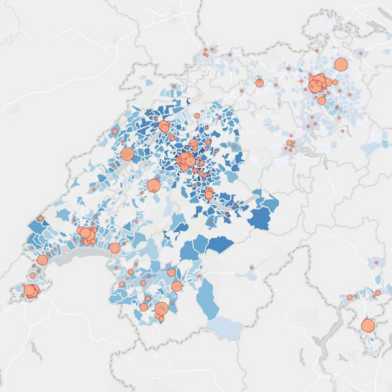
How exactly is the coronavirus spreading in Switzerland? To determine this based on a large dataset, Biomedical informatics specialists from ETH Zurich and the canton of Bern have now combined their online questionnaires on the shared platform covidtracker.ch.
On the trail of the virus
News
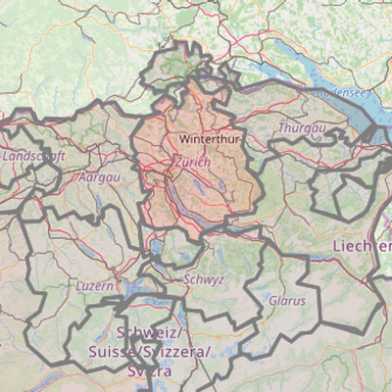
Participate in containing coronavirus: medical informatics specialists at ETH Zurich have developed a monitoring system to complement corona tests and track how the virus is spreading in Switzerland. All residents of Switzerland can take part in the online survey.
Circulatory failure is predictable
Press release

Researchers at ETH Zurich and Bern University Hospital have developed a method for predicting circulatory failure in patients in intensive care units – enabling clinicians to intervene at an early stage. Their approach uses machine learning methods to evaluate an extensive body of patient data.
Mountain vegetation dries out Alpine water fluxes
News

ETH researchers confirm the paradox: rather than withering during droughts, plants at higher elevations absolutely thrive, as a study just published in the journal Nature Climate Change shows.
Zebra finches learn their courtship song efficiently
News
Zebra finches are very efficient at learning their courtship songs, as researchers from ETH Zurich and the University of Zurich have shown. In the morning, the birds remember the positive learning progress of the previous day, but forget the failures overnight.
Three new National Centres of Competence in Research for ETH
News
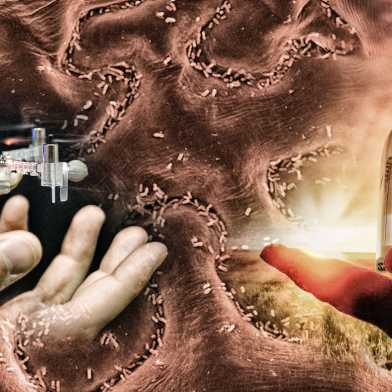
Automation and digitisation of industry and society, new approaches to sustainable chemistry, and the influence of bacteria on health – these are the topics covered by the three new National Centres of Competence led or co-led by ETH Zurich.
Averting a digital health crash
Zukunftsblog
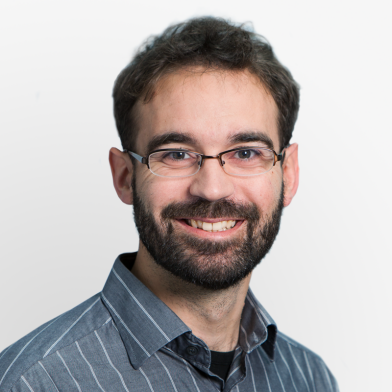
The medical sector must now learn from the consequences of the recent Boeing 737 MAX catastrophes, warns Walter Karlen, pointing out parallels.
A politically neutral hub for AI research
Zukunftsblog

The growing politicisation of AI harbours risks. Sophie-Charlotte Fischer and Andreas Wenger propose a hub for AI research in Switzerland committed to the responsible development of the new technologies.
One step ahead of the burglars
News
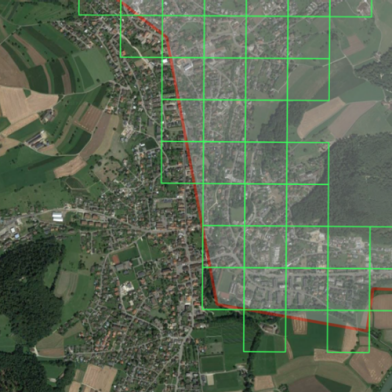
A new machine-learning method developed by ETH scientists makes it possible to predict burglaries even in sparsely populated areas.
The advantages of a doppelgänger city
Zukunftsblog
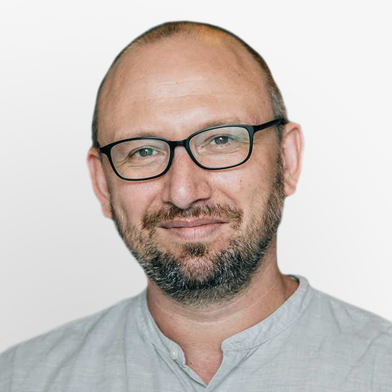
Pieter Fourie explains how smartphone location data can be analysed without violating the users’ privacy.
Personalised medicine and the European data misery
Zukunftsblog

Obtaining relevant patient data for pharmaceutical and medical research in Europe is no easy task. Ernst Hafen outlines a possible way forward.
Swiss way to personalised education
Zukunftsblog

Education will be digitised, with data connected in a meaningful way and managed by students to inform their learning. Ernst Hafen envisages how his granddaughter will study at ETH and how schools could work with the Swiss Radio and Television Company SRG.
ETH Zurich promotes data science research
News
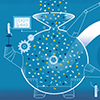
Intelligent data science approaches are changing science, the economy and society. In a new interdisciplinary initiative, ETH researchers from the fields of mathematics, computer science and information technology are therefore increasingly dedicating themselves to the foundations of data science.
Warming in the stratosphere leads to cold winters
News
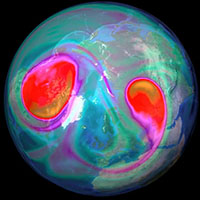
In the first week of January, the Arctic stratosphere suddenly warmed up, an occurrence known as “sudden stratospheric warming” (SSW). This phenomenon results in cold winter weather, just the kind we are facing now – ETH researchers have visualised the event that was observed before the current one – in February 2018. Daniela Domeisen explains how this phenomenon occurs in an interview.
Fewer false alarms in intensive care
News

Researchers at ETH Zurich are applying machine learning in intensive care units to distinguish between false alarms and those signalling real medical issues.
“We have succeeded in sharing genetic data across national borders”
News
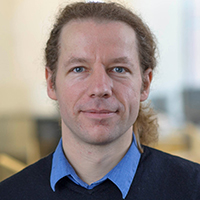
ETH Professor Gunnar Rätsch played a major part in creating the biggest public database for anonymised information on two important breast cancer genes. The database helps to improve the treatment of patients. ETH News spoke with him about the background, his motivation and the challenges such a project presents.
ETH Computer Sciences at the forefront
News

In the latest Times Higher Education subject ranking list "Computer Sciences", the Department of Computer Science at ETH Zurich ranks second.
Virtual learning robot for youngsters
News

Programming a robot: something most kids would love to do. “RosieReality” makes it possible – even if it’s only in augmented reality. The ETH spin-off plans to use the new technology to teach young kids about programming and robotics.
Is medicine ready for artificial intelligence?
Zukunftsblog
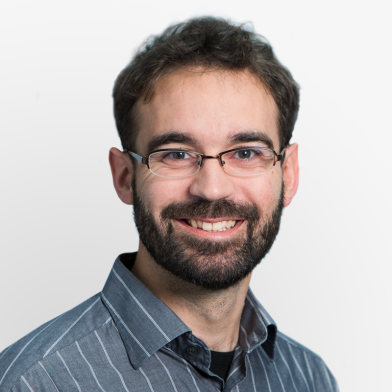
Artificial intelligence can help make medicine more efficient and safer. China is a forerunner in this field; we must not miss the boat, says Walter Karlen.
What Switzerland can learn from Amazon
Zukunftsblog

Roger Wattenhofer thinks that programming interfaces are underestimated. They would offer enormous opportunities – if the authorities got involved.
Observing glaciers in “real time”
News

Hot summers cause glaciers to melt. That not only changes the makeup of the landscape and hence the maps of Switzerland, it also affects every area of society. A new, dynamic glacier inventory makes the impact of climate change and the changing landscape visible.
Hidden signs in cancer tissue
News
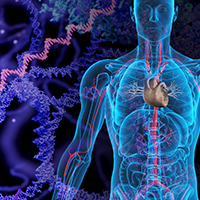
When scientists at ETH Zurich analysed huge amounts of genetic cancer data, they found previously unresearched molecular changes. These could help in developing new personalised cancer treatments.
Challenge the best in Data Science
News

This autumn will see the launch of a new continuing education programme known as the Diploma of Advanced Studies ETH in Data Science. Quick decision-makers can apply now.
ETH at the "Informatiktage 2018"
News
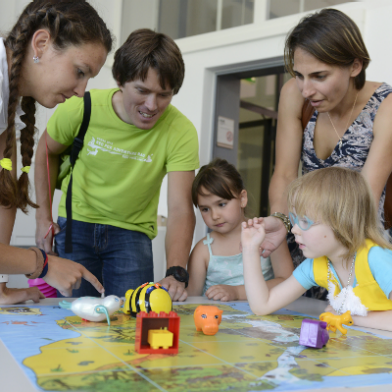
On 1 and 2 June, it will be that time of year again. In the region of Zurich the computer science festival – the Informatiktage – is being held for the third time.
Higher temperature, heavier rain
News

An evaluation of weather radar measurements reveals that in the eastern Mediterranean the total amount of rain decreases with increasing temperatures. But while storms are weakening, convective rain cells – the chief cause of natural hazards in the region – are intensifying.
Getting health data sharing off the ground
News

To make progress in personalised medicine, researchers and doctors need access to health data. However, as a study by ETH researchers shows, comprehensive guidelines for the exchange of such data are lacking, being one of the primary factors why health data are still shared so infrequently.
Why citizens should have control of their own data
Zukunftsblog

Ernst Hafen argues that society and research will benefit when we have control of our personal health data and manage this data cooperatively.
The thermodynamics of computing
News

Information processing requires a lot of energy. Energy-saving computer systems could make computing more efficient, but the efficiency of these systems can’t be increased indefinitely, as ETH physicists show.
Big data against cyberattackers
News

Cyberattacks pose a major risk for companies. ETH spin-off Exeon Analytics has developed a piece of software that uses big data to help companies protect themselves against data theft. The first licenses are expected to be sold in the coming weeks.
It's not the "what" that counts, but the "why"
Zukunftsblog
The big data hype is in marked contrast to tangible results in the social sciences, says Frank Schweitzer.
What does an image truly convey?
News
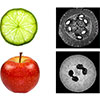
Philosophy of science in medical research: pharmacy students are learning how theory, methods and experiments affect scientific results and how to assess the significance of the results.
AlphaZero just wants to play!
Zukunftsblog

Artificial intelligence is continually hyped up, but disappears from view again just as quickly. Roger Wattenhofer explains why that might soon change.
Algorithm increases employment opportunities for refugees
Press release

A data-driven approach could help increase employment levels for asylum seekers in Switzerland from 15 to 26 percent. Social scientists from Switzerland and the U.S., in collaboration with ETH’s Public Policy Group, reached this conclusion in the journal Science.
Breathtaking roofs and new students
News
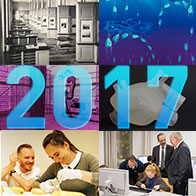
Digital fabrication techniques for buildings and breathtaking concrete roofs, a heart made of silicone, and a new degree programme in medicine; in 2017, teaching and research at ETH Zurich were characterised by new ventures and a pioneering spirit.
Why ETH will blog more broadly
Zukunftsblog

Science has to prove its relevance to society. ETH Zurich is therefore expanding its blog activities: in future, the Zukunftsblog will cover digitalisation and health alongside the topic of sustainability.
“We are seeing a fundamental shift”
News
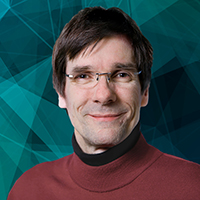
Lothar Thiele is the Executive Board’s new representative for digital transformation. In this interview, he explains why ETH needs a digital transformation representative and why digitalisation deserves so much attention.
Innovative data science harnessing the spirit of Japanese poetry
News

ETH Lausanne and ETH Zurich’s Swiss Data Science Center is off to a successful start. In September, scientists at the Center launched their open source platform Renga. First research projects have been chosen.
“Schools are not meeting their aims”
News

As part of today’s Digitaltag event, 180 children are visiting ETH Zurich to attend a programming workshop organised by the Centre for Computer Science Education. ETH professor Juraj Hromkovic explains why good computer science education is so important for young people and what is currently going wrong in schools.
ETH at Digitaltag
News

Digitalisation is rapidly transforming our society. Switzerland’s first Digitaltag event on 21 November 2017 will showcase what this change means for our country and our economy. ETH Zurich will also be there to shed some light on selected aspects of the digital transformation.
“Our Master’s programme is in great demand”
News
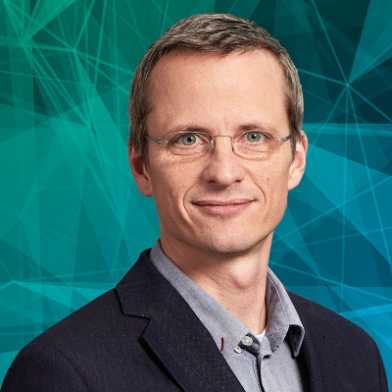
Mathematics is the basis for all the new opportunities opened up by digitalisation. Statistics professor Nicolai Meinshausen discusses the increasing importance of his field and the challenges it faces.
“Blockchain has been hyped up”
News
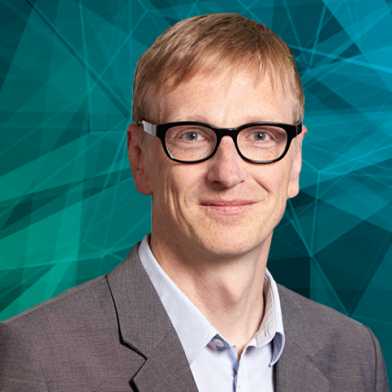
ETH Professor Roger Wattenhofer discusses how blockchain, bitcoin and digitalisation may affect our society.
The creative data interpreters
News
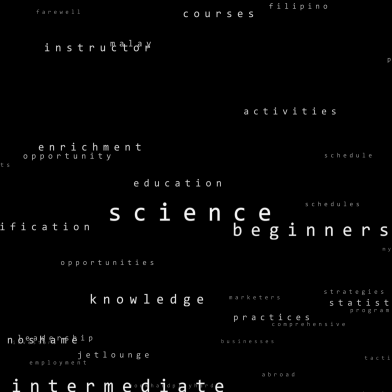
The ETH spin-off SpinningBytes programs software that uses machine learning not only to analyse but also to understand huge amounts of data. It enables customised solutions to be developed for numerous IT problems, and allows new insights to be gained from previously unused data.
“Medicine is becoming model-driven”
News
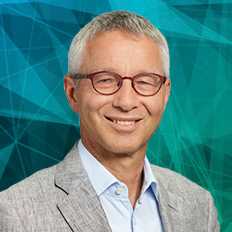
ETH Professor and computer scientist Joachim Buhmann works intensively on healthcare issues. In an interview with ETH News, he explains how computer models will make their way into the world of medicine, and talks about models that are so complicated that humans can no longer process them alone.
The love of problem-solving
News

What if you had the chance to complete your own research project at ETH over the summer and to join in discussions about the university’s future? Two students, Katherine Bancroft and Siqi Liu, seized this opportunity, made possible by a new student programme at ETH’s Department of Computer Science.
The right order
News
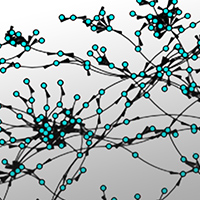
Ingo Scholtes from the Chair of Systems Design has developed an analytical method that takes account of the chronological order of connections within networks. This not only makes it possible to more accurately identify links between topics on the internet, but also makes it easier to predict the spread of epidemics, for example.
“It’s always a compromise”
News
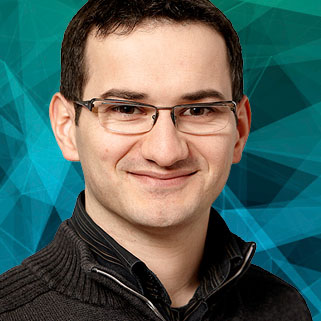
Digitalisation simplifies many aspects of our everyday life, but it also creates new risks. Srdjan Capkun, Professor for Information Security, explains how to find the right balance between convenience and security.
“We have to seize this opportunity”
News

Digitalisation is leading to profound changes in more and more areas of life. For ETH President Lino Guzzella, it is clear that these changes present a huge opportunity for Switzerland, as the country offers the ideal conditions in which to build a competitive digital industry.
Piz Daint is a world leader
News
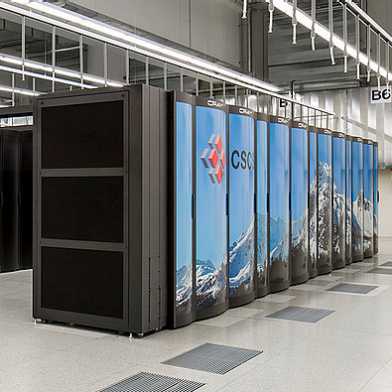
After an extensive hardware upgrade at the end of last year, the CSCS supercomputer Piz Daint is now the most powerful mainframe computer outside Asia. With a peak performance in excess of 20 petaflops, it will enable pioneering research in Switzerland and Europe.